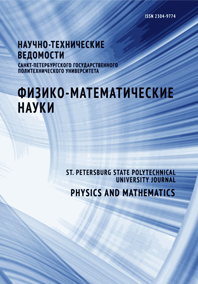Investigation of degradation characteristics of photosensitive structures with porous silicon
In this paper, the effect of porous silicon on the characteristics of photosensitive structures in open space is investigated. For this purpose, photovoltaic converters based on polished silicon of various configurations were created: a sample with a porous layer and a coating of zinc sulfide; a sample without a porous layer with a coating of zinc sulfide and a sample with a porous layer and a combined coating of zinc sulfide and dysprosium fluoride. The porous layer is less susceptible to environmental factors harmful to solar cells that reduce their service life, in particular, cosmic radiation. Also, porous surface contributes to higher electrical and optical properties of solar cells. And the antireflection coatings of zinc sulfide and dysprosium fluoride can reduce the number of recombination centers and increase light absorption, which also has a positive effect on the characteristics of structures. The results of
the study of volt-ampere characteristics of silicon photosensitive devices are presented. An increase in the radiation resistance of structures using porous silicon is shown.


